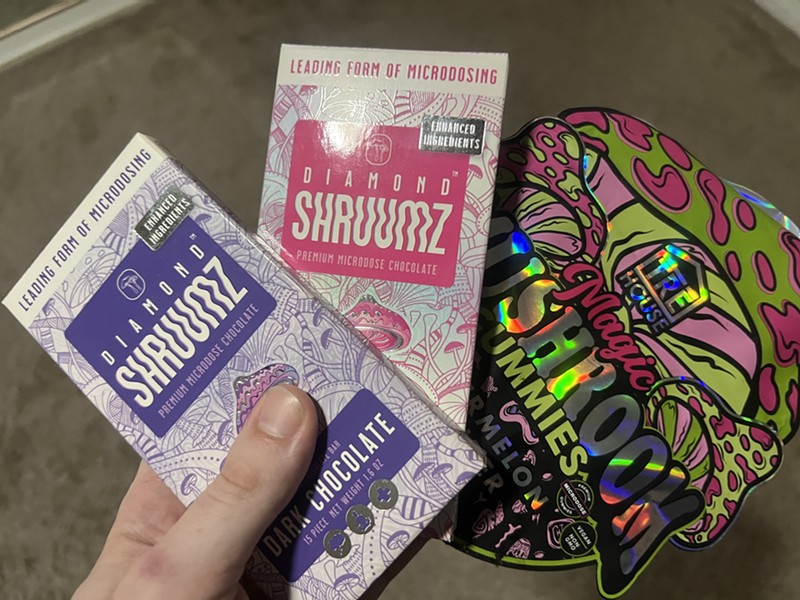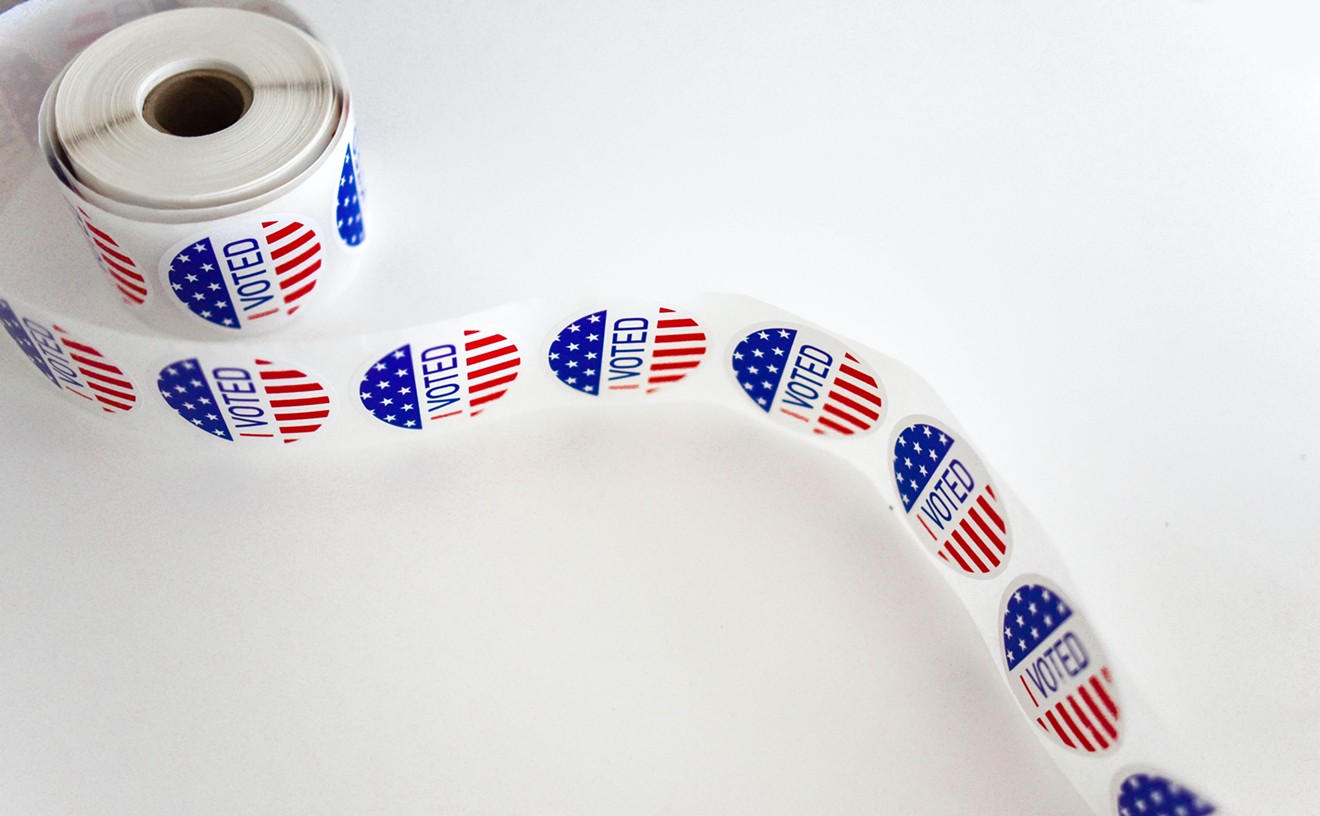If you’ve been following our mushroom coverage, you’ll know that one brand called Diamond Shruumz has sent dozens of users to the hospital and is potentially associated with two deaths. The FDA has been keeping tabs on the adverse effects, which have included seizures and vomiting. Diamond Shruumz products have led to 145 illnesses and 59 hospitalizations across 29 states, including Texas.
The company behind the Diamond Shruumz edibles initiated a recall after its products started making people sick. However, we found one store in Dallas that was still carrying the products in July, and the FDA identified several others in the area and across Texas with the questionable edibles still on their shelves.
These products often boast that they contain a “proprietary mushroom blend.” Sometimes the packages will be labeled with what’s in the blend, but the FDA has tested some of the products and found they contain substances not listed on the packaging, including a synthetic hallucinogen called 4-AcO-DMT. This psychedelic is generally referred to as synthetic mushrooms, as its effects are very similar to real magic mushrooms, which contain the active psychedelic ingredient psilocybin, a Schedule I controlled substance. Both psilocybin and 4-AcO-DMT convert into psilocin when ingested, which causes people to trip.
As it turns out, FDA tests also revealed that the Diamond Shruumz mushroom edibles contained psilocin (another Schedule I controlled substance) and the prescription drug pregabalin, which is used to treat nerve pain. We reached out to the company behind the edibles about these findings but have not heard back from them.“It was kind of shocking to see how many bars there were with [4-AcO-DMT] and the lack of consistency between them." – Christopher Pauli, Tryptomics
tweet this
The folks at the FDA aren’t the only ones interested in what’s turning up in these mushroom edibles. A Colorado-based company called Tryptomics tested a number of these edibles from different brands for the Los Angeles Times and found roughly 10%–30% contained 4-AcO-DMT. The synthetic substance was also found in the mushroom edibles from a brand called TRE House that we tried and tripped on a few months ago. Products like these can be found all over the Dallas-Fort Worth area.
Christopher Pauli, cofounder of Tryptomics, said that the synthetic drug could be contaminated with toxic heavy metals and residual solvents. He also said some manufacturers are putting other synthetic substances in their mushroom products, such as 4-HO-MET and 4-Acetoxy-MET, which are also psychedelic.
Pauli said the company first became interested in testing these products when a client told him last December they had gotten sick after eating a mushroom chocolate bar. After that, Pauli said, “We did find quite a bit of chocolate bars that are either from smoke shops or different kinds of retailers that had 4-AcO-DMT.”
Asked about the legality of these synthetic mushrooms, the FDA wouldn’t answer the Los Angeles Times. The agency is “not commenting on the lawfulness of particular ingredients,” it told the publication.
The tests also revealed the products lack uniformity, with some containing more substances than others. “It was kind of shocking to see how many bars there were with [4-AcO-DMT] and the lack of consistency between them,” Pauli said.
According to the Los Angeles Times, some of the products contained a different psychoactive fungus with unpleasant side effects, and one contained only bath salts.
One problem with identifying products with illicit substances is there are legitimate mushroom edibles out there that won’t send you to the hospital or make you trip, Pauli said. Another issue is there are also counterfeit products out there.
All of these could, or should, come with QR codes that lead people to lab results for the products they’re buying. But as the Los Angeles Times found, the lab results aren’t always for the product you’ve bought and may not be accurate. This can be troublesome for a number of reasons. For one, you don’t know what you’re taking or how much of it you're taking. And because you don’t know what’s in a given product, you also don’t know if it will react adversely with other substances you may have in your system, such as medication, said Caleb King, the other cofounder of Tryptomics.
Unfortunately, the openness with which these products are sold might give some a false sense of security when they don’t really know what they’re consuming. “It all boils down to informed consent, really, that I think as a consenting adult, you should be told what you’re being given,” Pauli said. “You have no way of kind of protecting yourself.”













